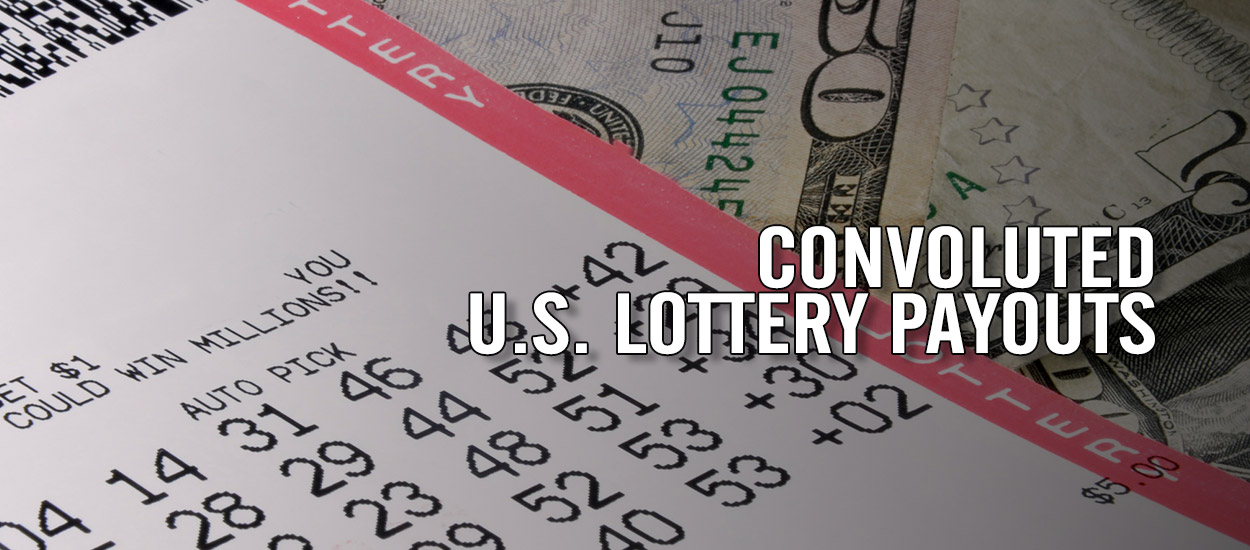
The top ten gambling stories of the year, Part 1
2016 may appear like a slow year in gambling news on the surface but there are some events that are so significant that when looked back on in the future could make 2016 one of the most important years in gambling history. The below are the top gaming stories of 2016 numbers six though 10. The #1 gambling news event will be revealed in part 2 of the top 10 North American gambling stories of 2016.
10. The ongoing fight in California for online poker
To those who have followed the issue of online poker in California it is hard to fathom that the product is still not legal. Since the passing of the UIGEA in 2006 there has been discussion of an intrastate gambling network in California, but one group or another always ensures that online poker legislation in California is stalled. The state has been anxious to legalize online poker to help bolster state coffers but the Indian tribes, the land-based poker rooms and the horse racing industry have stood in the way.
Last year the state seemed to work out a deal with the horse racing industry by guaranteeing them up to $60 million from poker revenues in exchange for not pursuing online poker and most poker rooms now seem to be ready to ratify any legislation after they aligned themselves with companies prepared to launch online poker. But the Indian tribes are still fighting and the Pechanga/Agua coalition seem to be the biggest roadblock. Prior to 2016 three separate bills were introduced in the state but each died after the tribes couldn't agree on a bad actor provision.
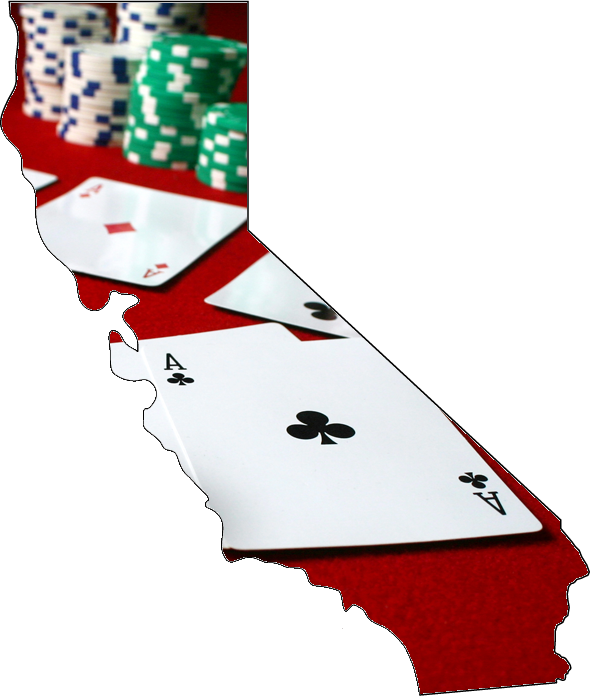 The Pechanga/Agua tribe has demanded that any bill exclude a company that catered to the U.S. market after the passage of the UIGEA in 2006. This includes both covered people and covered assets which would ensure that PokerStars can never get a license in the sate. The Pechanga band knows that if PokerStars is allowed in they'll dominate the market due to their expertise and brand recognition. The San Manuel and Morongo tribes, which have a partnership agreement with PokerStars have been insistent that the bad actor clause not be included and since each group has significant clout it's almost impossible to get the 2/3 vote in the Assembly, which is necessary to get a bill passed. The Bicycle Club, Commerce Club and Hawaiian Islands poker clubs also have a partnership agreement with PokerStars and they have a great deal of clout with Assemblymen and Senators as well.
The Pechanga/Agua tribe has demanded that any bill exclude a company that catered to the U.S. market after the passage of the UIGEA in 2006. This includes both covered people and covered assets which would ensure that PokerStars can never get a license in the sate. The Pechanga band knows that if PokerStars is allowed in they'll dominate the market due to their expertise and brand recognition. The San Manuel and Morongo tribes, which have a partnership agreement with PokerStars have been insistent that the bad actor clause not be included and since each group has significant clout it's almost impossible to get the 2/3 vote in the Assembly, which is necessary to get a bill passed. The Bicycle Club, Commerce Club and Hawaiian Islands poker clubs also have a partnership agreement with PokerStars and they have a great deal of clout with Assemblymen and Senators as well.
The latest bill, AB2863, was introduced by Assemblyman Adam Gray in February of 2016 and included much of the same language as previous bills but it also included a sliding tax on revenues to be paid to state coffers. There was nothing relating to bad actors so the Pechanga band refused to address it. The bill was amended a few months later to include a bad actor clause for companies that operated after December 2011 as well as a flat 10% tax but again the Pechanga led coalition refused to accept it since PokerStars stopped catering to the U.S. market after Black Friday in 2011, thus that date would allow them in. Finally, Gray amended the bill once again to put a 5-year ban on any company that operated after the passage of the UIGEA although companies could circumvent that ban by paying a $20 million fine.
PokerStars apparently was prepared to accept that new bill and the Rincon and Pala band also came on board but the Pechanga/Agua led band called the initiative a joke since $20 million is nothing to PokerStars and they countered with a 10-year ban and no monetary buyout and stated it was reasonable, since Nevada placed a 5-year ban on PokerStars before they could begin operating in that state. PokerStars and its partners absolutely refused to accept it claiming that there is only room for 6-10 poker sites in California so a 10-year ban would effectively turn into a lifetime ban. AB2863 was never voted on and died before it could be addressed.
There is some belief that the new presidency could change things, however. While Trump likely will continue to make gambling a state decision, there is some suggestions that he may legalize poker and sports at the federal level to appease states like New Jersey but ban casino games to appease Sheldon Adelson. If this happens then it will be up to the feds to determine who is eligible to apply for a license and no doubt both sides are hoping any new federal rules will support their stance.
9. The increased interest in eSports betting
There's no question that computers and the Internet have created a new normal in society. Email and online banking has practically made the post office irrelevant, virtual currencies like bitcoin are becoming more mainstream, social media and gaming are being practiced by all generations daily and eSports has become almost as popular as traditional sports for the younger generation.
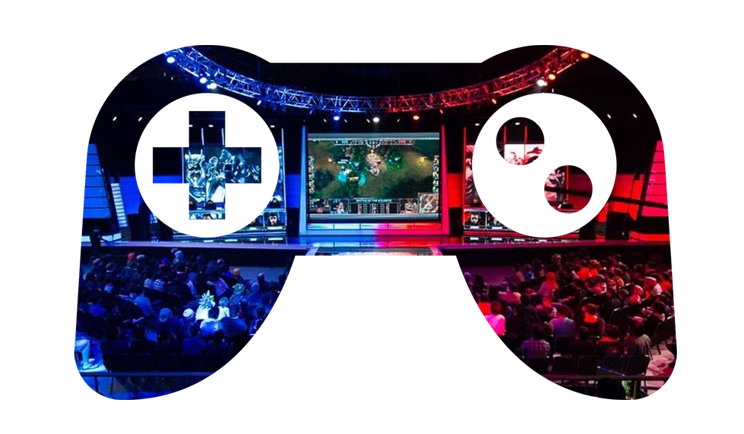 eSports are competitions that are facilitated electronically and mediated by human-computer interfaces. They are generally video games and almost always battle related. The prizes for winning the competitions are substantial and consequently many parents could see a lucrative future for their kids who spend the majority of their days in front of TV or the computer. There are many types of eSports but the majority are multiplayer video game competitions between professional gamers in games such as Counter-Strike, Dota2, StarCraft, League of Legends, Call of Duty and other games that involve online battles. eSports are televised or streamed across the internet and many take place in arenas that seat thousands of people. Most viewers are male and under the age of 35, but those in the industry state that more females and over 40 somethings are tuning in as well. In 2016 it has been estimated that about $500 million of revenue was generated from eSports and about 225 million people watched eSports worldwide.
eSports are competitions that are facilitated electronically and mediated by human-computer interfaces. They are generally video games and almost always battle related. The prizes for winning the competitions are substantial and consequently many parents could see a lucrative future for their kids who spend the majority of their days in front of TV or the computer. There are many types of eSports but the majority are multiplayer video game competitions between professional gamers in games such as Counter-Strike, Dota2, StarCraft, League of Legends, Call of Duty and other games that involve online battles. eSports are televised or streamed across the internet and many take place in arenas that seat thousands of people. Most viewers are male and under the age of 35, but those in the industry state that more females and over 40 somethings are tuning in as well. In 2016 it has been estimated that about $500 million of revenue was generated from eSports and about 225 million people watched eSports worldwide.
Because of its newfound popularity many mainstream gambling sites have offered eSports gambling, including U.S. facing companies like Bookmaker and 5Dimes and non-U.S. facing companies like Pinnacle Sports, William Hill, Skybet and Bet365. In fact, Pinnacle has odds on every major Dota2, League of Legends and Starcraft2 competition offered worldwide. It should be noted that DraftKings offers some eSports contests too and they had sponsorships with some eSports leagues, although they dropped those sponsorships in 2016 after the company tried to find ways to cut costs.
In 2016 eSports betting was given an additional boost when the Nevada Gaming Policy Committee met in November to examine the possibility of allowing eSports betting in Las Vegas casinos, They determined that allowing eSports didn't require any new legislation, but rather tweaking existing legislation. Betradar and DoJo Madness teamed up to provide global eSports odds and it appears that most sportsbooks do use their odds both live and in-play. Because of that decision by the Nevada Gaming Policy Committee, William Hill in Nevada took wagers on the Internal Extreme Masters (IEM) eSports event in Oakland in November at the Downtown Grand Casino, which the Nevada governor praised as expanding a traditional offering of Las Vegas and ensuring the state becomes the eSports capital of the world.
It's uncertain how William Hill did with that event, but a William Hill employee said that eSports has been very lucrative with William Hill in the UK, so he expects that that William Hill in Nevada will be profitable as well. He also believes that eSports will help build interest in traditional sports betting as well. Without question eSports will become a leading form of gambling for the younger generation in the near future.
8. The efforts by Quebec to block gambling ISPs
Since its inception, Lotto Quebec's online gambling website Espacejeux.com, which is run by Amaya gaming, has seen poor results. Instead of trying to fix the product or find out why Quebecers aren't interested in playing there, Lotto Quebec instead decided to put the blame on offshore gambling websites and the Quebec government put in a section in the 2015 Quebec budget that was going to create a law which required ISP providers to block access to offshore gambling sites. The Régie des alcools, des courses et des jeux (Quebec's alcohol and Gaming board) was to enforce the new law. The relevant section relating to gambling in the budget was as follows:
"To monitor online gambling, the Consumer Protection Act is amended to require Internet service providers to block access to illegal gambling sites entered on a list drawn up by the Société des loteries du Québec, which must report to the Régie des alcools, des courses et des jeux if service providers fail to comply with the Act. The Régie will be responsible for informing service providers of their non-compliance, and the president and chief executive officer of the Société or a person the latter designates is granted investigation powers to ensure compliance."
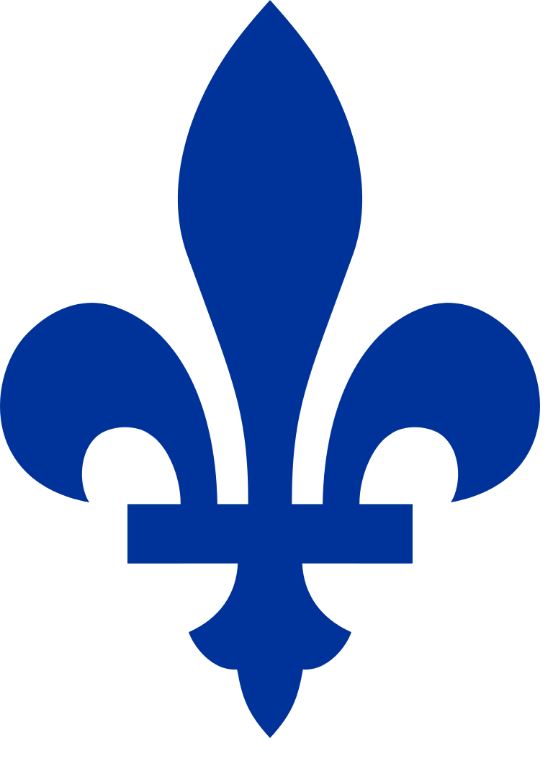 The law was passed in May of 2016 and the fine to any ISPs that fail to comply with the blocking orders is $100,000 per incident. Plus, the ISPs are expected to absorb the cost of blocking the sites which the ISPs say will be significant.
The law was passed in May of 2016 and the fine to any ISPs that fail to comply with the blocking orders is $100,000 per incident. Plus, the ISPs are expected to absorb the cost of blocking the sites which the ISPs say will be significant.
Almost immediately after the law passed The Public Interest Advocacy Centre (PIAC) appealed to the Canadian Radio-Telephone and Telecommunications Commission (CRTC) asking them to declare the bill illegal. The Canadian Wireless Telecommunications Association (CWTA), whose members include the largest internet providers in Canada - Rogers, Bell Canada, Telus and Shaw, issued the same objection and filed a challenge in the Quebec Superior court to have the law deemed unconstitutional. The CWTA argued that telecommunications falls under federal rules, not provincial, so the province has no business passing any laws related to telecommunications. They also claim the law violates the freedom of information laws in Canada. The Quebec Minister of Finance, Carlos Leitao, responded by saying that the province had lawyers look at the law and those lawyers deemed it is legal since compulsive gambling is a "health issue" and this law was created to combat that health concern. Not surprising, those who oppose the law suggested that the argument is illogical since Quebec operates casinos and its own online gambling site, so if they were truly concerned with problem gambling they would get rid of all gambling in Quebec. To make the argument even more laughable, Lotto Quebec wants to exclude some gambling websites from the enforcement including PokerStars, which is owned and operated by Amaya Gaming, and as mentioned, runs the Espacejeux.com website as well.
In September, the CRTC responded to the PIAC complaint and said that website blocking ran afoul of the federal Telecommunications Act and consequently the Quebec government had no basis to block websites. They said that the courts will decide whether the law is constitutional (although there is an indication the courts are prepared to deem the law unconstitutional), but even if the courts deem the provincial law is constitutional, the province can't block websites since federal law trumps provincial legislation. The CRTC suspended the PIAC motion in December pending the ruling by Quebec's Supreme Court but indicated that ruling will not change their previous ruling and Quebec will not be allowed to enforce the website blocking provisions laid out in the newly created law.
This case has generated interest by other countries and even U.S. states, since other countries may have similar plans in mind. While Canada's laws won't necessarily affect those jurisdictions directly, the arguments and reasoning for decisions will certainly be considered and possibly used if they want to address any measures that require website blocking.
7. The defeat of single game sports betting in Canada
While many believe that all forms sports betting in Canada are legal, the truth is that it isn't. Under Canadian criminal law only provincial governments can legally offer gambling and each province has a sports lottery that allows residents to wager on multiple games (i.e. parlays). The payouts are poor – in line with the holds on most lotteries – and players must include at least 2 games since there is a section in the Canadian criminal code which makes betting on a single sport illegal. To help grow interest in Casino Windsor, a Windsor based member of parliament, Joe Comartin, introduced a private members bill in 2011 which aimed to take out that section of the criminal code that banned single game sports betting. The motion was heard and received unanimous all party support in the House of Commons. Under the Canadian system when a bill is passes in the House it is sent to the  unelected Canadian senate which almost always rubber stamps it to make it a law. Unfortunately for Comartin and Canadian gamblers, the motion passed at a time when the Canadian senate was coming under scrutiny for spending scandals and there was talk by then Prime Minister Stephen Harper of either getting rid of the senate or making it an elected body rather than just patronage appointments. It appears that in an effort to make itself appear to be more important than it is and to issue a slap at the Prime Minister, many senators decided to use this bill to make a point and most senators indicated they would not sign it. The clear majority of the senate who balked were Liberal and New Democrat senators. There is no question that many opposed the bill because they personally didn't like gambling but the majority were trying make a point to the Conservative dominated House of Commons. As well, members of the NHL including Bill Daley and then senator and famous hockey player Frank Mahovlich decided not to sign it because they were worried that single game sports betting would lead to corruption. One senator, Bob Runciman, who supported the bill lambasted the other senators and the leagues for their hypocrisy. He claimed it was not their duty to block legislation unanimously passed in the House and he was upset that the vote tied the hands of provinces that want to introduce single game sports betting. Moreover he claimed the vote in the senate guaranteed that offshore sportsbooks would flourish since Canadians can still happily play at many offshore sportsbooks that offers singe game sports betting. The senate never signed the bill and it died on the table in 2014. The Canadian Gaming Association called that decision undemocratic and a bad decision for Canadian taxpayers.
unelected Canadian senate which almost always rubber stamps it to make it a law. Unfortunately for Comartin and Canadian gamblers, the motion passed at a time when the Canadian senate was coming under scrutiny for spending scandals and there was talk by then Prime Minister Stephen Harper of either getting rid of the senate or making it an elected body rather than just patronage appointments. It appears that in an effort to make itself appear to be more important than it is and to issue a slap at the Prime Minister, many senators decided to use this bill to make a point and most senators indicated they would not sign it. The clear majority of the senate who balked were Liberal and New Democrat senators. There is no question that many opposed the bill because they personally didn't like gambling but the majority were trying make a point to the Conservative dominated House of Commons. As well, members of the NHL including Bill Daley and then senator and famous hockey player Frank Mahovlich decided not to sign it because they were worried that single game sports betting would lead to corruption. One senator, Bob Runciman, who supported the bill lambasted the other senators and the leagues for their hypocrisy. He claimed it was not their duty to block legislation unanimously passed in the House and he was upset that the vote tied the hands of provinces that want to introduce single game sports betting. Moreover he claimed the vote in the senate guaranteed that offshore sportsbooks would flourish since Canadians can still happily play at many offshore sportsbooks that offers singe game sports betting. The senate never signed the bill and it died on the table in 2014. The Canadian Gaming Association called that decision undemocratic and a bad decision for Canadian taxpayers.
In 2016, Brian Masse, another Windsor MP reintroduced the bill and called it The Safe and Regulated Sports Betting Act. That bill was voted on again in the House in September 2016, but this time in a House that had a new Prime Minister, liberal Justin Trudeau, and a lot of new faces, many that were from backgrounds that opposed all forms of gambling. There was hope that if it passed the House again it would simply be approved by the Senate since the House now was dominated by Liberals, but this time but the House voted down the bill by a vote of 155-133. It's unlikely the vote will come up again as long as Trudeau remains in power.
6. Caesars Entertainment reaching a deal with creditors
Ever since Caesars Entertainment announced a plan to restructure the company two years ago, in an effort to make it a going concern, they have been at odds with junior creditors. Caesar's plan was to split the company into two entities, one Caesars Entertainment Operating Company and the other Caesars Entertainment Corp. The Operating company would assume most the debt, be reclassified as a real estate investment trust and would declare chapter 11 bankruptcy, while the other entity, which included the profitable casinos and the online gambling division, would be unaffected. Under the plan, about $10 billion in debt would be absolved and that would allow the company to keep operating.
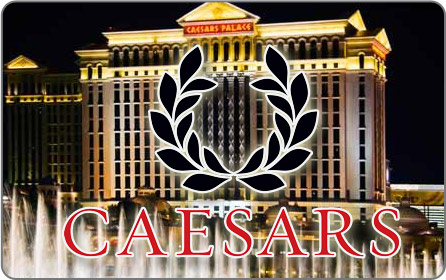 First lien creditors and bondholders approved of the restructuring since they were guaranteed to be paid the fair value of their investment, but junior creditors would see their investments devalued significantly and consequently protested and filed lawsuits with courts in Delaware, claiming the company was looting assets and trying to screw them over since they would receive only receive about 10 cents on the dollar per the plan. U.S. bankruptcy judge Benjamin Goldgar asked a prosecutor to check into the proposed plan by Caesars to determine if it the asset transfers were legal and ethical. In 2016 the report was about to be released by the prosecutor who apparently was going to side with the junior creditors, so Caesar's lawyers kept trying to block the report from being released and Goldgar told Caesars that unless they stopped their stall tactics he would put the whole company into liquidation. Caesars response to that was to ask for a mediator which was appointed in March, but that mediator quit later in the year after becoming upset with unknown comments by Goldgar.
First lien creditors and bondholders approved of the restructuring since they were guaranteed to be paid the fair value of their investment, but junior creditors would see their investments devalued significantly and consequently protested and filed lawsuits with courts in Delaware, claiming the company was looting assets and trying to screw them over since they would receive only receive about 10 cents on the dollar per the plan. U.S. bankruptcy judge Benjamin Goldgar asked a prosecutor to check into the proposed plan by Caesars to determine if it the asset transfers were legal and ethical. In 2016 the report was about to be released by the prosecutor who apparently was going to side with the junior creditors, so Caesar's lawyers kept trying to block the report from being released and Goldgar told Caesars that unless they stopped their stall tactics he would put the whole company into liquidation. Caesars response to that was to ask for a mediator which was appointed in March, but that mediator quit later in the year after becoming upset with unknown comments by Goldgar.
Caesars realized it had to raise more capital to increase the remuneration to the junior creditors if they were ever going to agree to the deal, so Caesars sold off its social games unit Playtika to a Chinese consortium for $4.4 billion late in 2016 and it has contemplated selling the World Series of Poker (WSOP) product as well, although to date it still owns that entity. With this new-found money, Caesars upped the offer to junior creditors to $5.6 billion which gives them 66 cents on the dollar of the current stock price. In exchange for accepting the offer, the junior creditors had to drop all complaints and lawsuits against Caesars. All junior creditors except one, Trilogy Capital Management, accepted the offer but in October under undisclosed terms Trilogy accepted the offer as well.
This final deal should spell the end of the holdups and allow the reorganization to be completed, but some industry analysts said there could still be some issues which will not allow the bankruptcy to be smooth, as there is still questions as to why a company can reorganize in this way. In the meantime, Caesars continues to lose significant amounts of money in a very slow economy where gambling seems to be taking one of the biggest hit.
Click here to see the Top 5 gambling stories of 2016 in North America.
Read insights from Hartley Henderson every week here at OSGA and check out Hartley's RUMOR MILL!























